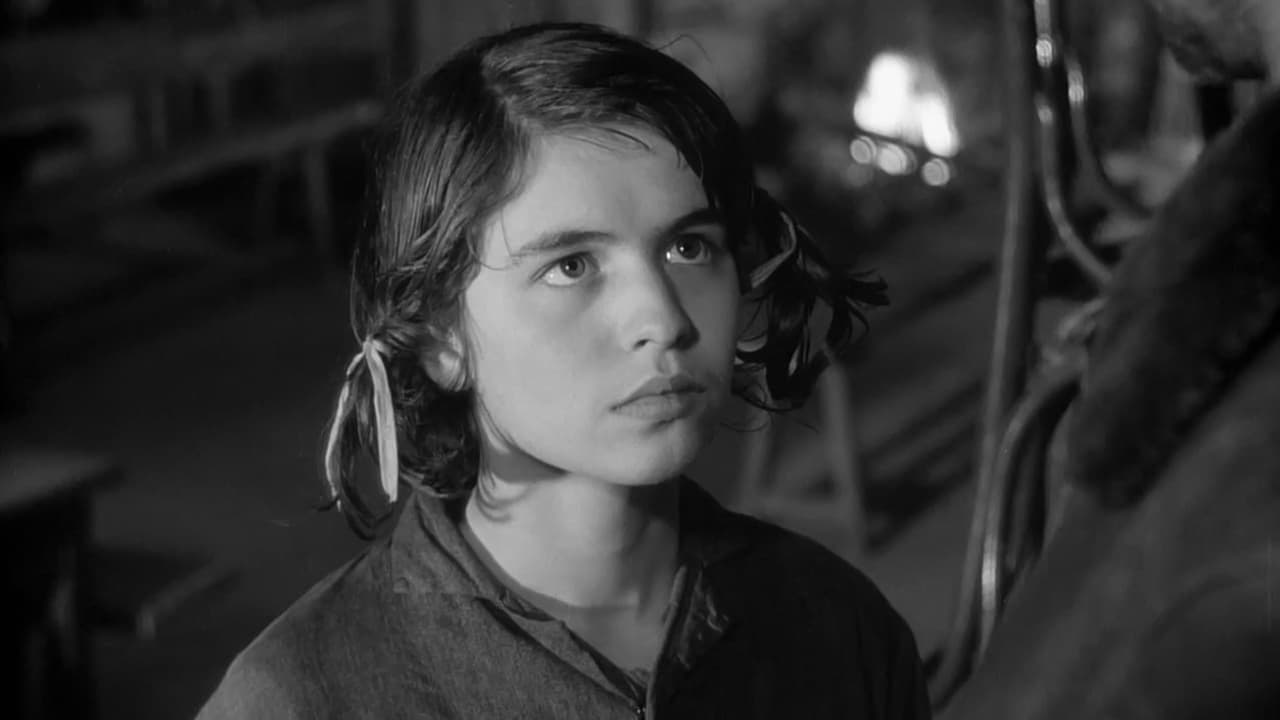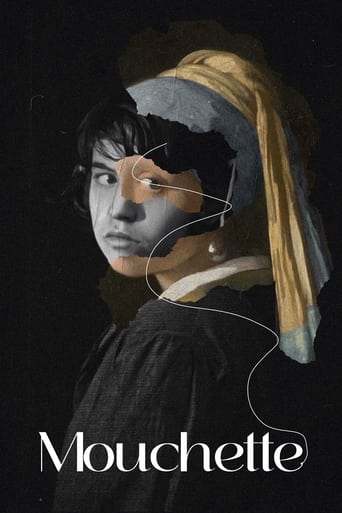Incannerax
What a waste of my time!!!
GamerTab
That was an excellent one.
Odelecol
Pretty good movie overall. First half was nothing special but it got better as it went along.
Asad Almond
A clunky actioner with a handful of cool moments.
Sergeant_Tibbs
Until now Robert Bresson has been one of those classic directors who have failed to connect with me. With Au Hasard Balthazar and Pickpocket, I've found his style over-simplified, bland and plodding. While Balthazar didn't work for me at all, Pickpocket had moments where it showed potential but then it was quickly squandered and taken in a different direction. Here with Mouchette, his style is finally working. It's a film utterly drenched in sorrow and pain. Through the protagonists' squirming and rebelling from her struggles, her actions are a catharsis from the frustrations of life and when she's punished for them, it digs deep. Although the storytelling techniques are similar to the films I didn't care much for, what elevates Mouchette is the passionate performances and the crisp photography. While I do regret that it's so brief, Mouchette is a brilliant portrayal of a truly tragic figure that faces the hardships and inevitable moral dilemmas of life. I'm very glad Bresson has warmed up to me as he's got many films I'm really looking forward to, such as A Man Escaped and Lancelot du Lac. 8/10
valbrazon
Mouchette is the first movie of Bresson i've watched. It's about the complicated life of a girl who lives in a poor family and who has no friends. After some minutes, i'm bored of the acting of actors which is very slow. It looks like they didn't sleep since few days. The ending is a bit stupid because she decide to commit suicide, and roll on the edge of a river and drop in water. I liked the part when Mouchette plays bumper car and meet a boy there, she try to talk with him after the game but her father come and slap her. Nadine Nortier is a pretty actress and it's astonishing as she only played in this movie.I don't recommend you this movie.
dbdumonteil
Sixteen years after having successfully exploited Georges Bernanos' universe for his "Journal d'Un Curé De Campagne" (1951), Robert Bresson appropriates once again another book by the French writer: "Mouchette" for a very personal, stylish rendering and a canonical film about stolen childhood. The filmmaker always supported that he'd prefer a film to be felt rather than to be understood. Needless to say we leave the projection with a big emotion inside us and we also feel helpless about Mouchette' terrible life. According to Bresson, Mouchette's tragic fate enabled him to put forward "misery, cruelty. They're everywhere: wars, tortures, murders".The film starts with Arsène's and the gamekeeper's eyes staring at quails and partridges that desperately try to free themselves from snares. This harrowing introduction sequence sets the scene for what follows after wards. How not to think of a metaphor for Mouchette's life that offers her no horizon and no hope? This teenage girl is all alone and in spite of her young age, she has to take care of her sick mother, her alcoholic father and her baby brother. She goes to school but feels rejected by her female fellow students, notably when school's over, they stone her. It's the same thing every day and Mouchette is trapped in her loneliness. That's why the sequence at the fair comes as a sort of relief for her. The scene at the bumper cars provides her momentary solace and joy. Then, the key sequence with Arsène will make her open her eyes about what she really wants. In spite of her poverty and solitude, Mouchette needs to love but where to find it in a hostile world?Mouchette strongly belongs to the Bressonian world. She's an outcast and she can't integrate herself to her surrounding. Once again, Bresson underscores the opposition between a pure, subjective person and an objective, hostile world in a sparse, minimal directing with a supremacy granted to images and sounds and the evident symbols they convey. An eloquent example would be when the little girl is all alone in the country and can hear the sound of guns and can see rabbits running or dying. She hasn't got a friend or even one member of her family to talk to. When she wants to tell her mother what Arsène did to her, she dies. Fate dogs her. There's no room for the weak and there's one last exit left... Bresson's austere, intensely visual making fits the story and its themes like a glove and if you don't feel anything during the last sequence, you have a heart of stone.
bateauivre11
Stories of childhood have often been tempered with the melancholic yearning of lost innocence (as in Louis Malle's Au Revoir Les Enfants) or the profound weight of human misery (as in Robert Bresson's Mouchette). -An opinion in a filme web - Director Robert Bresson disliked many things like, greed, shallowness, insincerity His filmes and his characters are surrounded by indifference,INJUSTICE and cruelty.and Mouchette the intransigent anti heroine of this remarkable filme knows about that.In one scene Mouchette said something,(to the man he later assaulted her), that really strikes me: `You can trust me ... I detest them' Every great film has its unforgetable moments in this one is Mouchette's night in the woods,and later over the edge and into the water… Mouchette went through a lot of bad things,the adults in this filme are just awful,one woman tells to her `You are bad.... You have evil in your eyes.' Bresson said: `Mouchette offers evidence of misery and cruelty. She is found everywhere: wars, concentration camps, tortures, assassinations.' –That's it… the Master has spoken.

